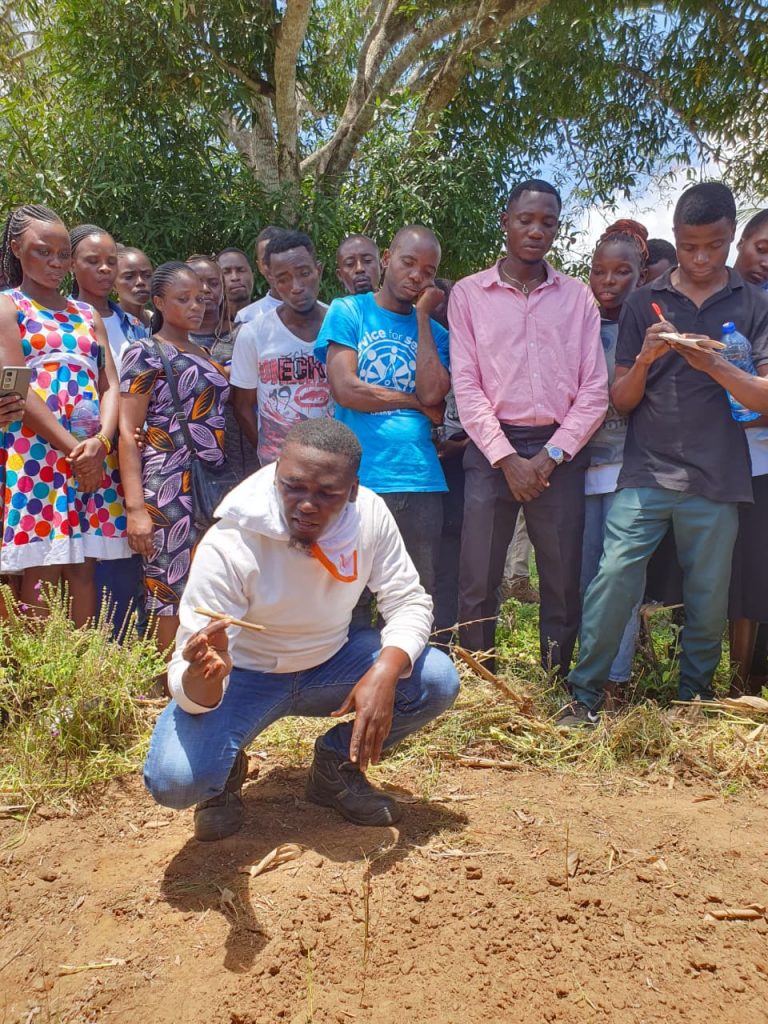
How Finger Millet Strengthens Food Security in Kilifi County
This October as we celebrated World Food Day, Kadzo Mwamure harvested finger millet on her farm in Kilifi. “Finger millet has given me nutrition, income, and hope,” says Kadzo. For seven groups of women farmers just like her, working with the Empowering Farmers Foundation (EFF), finger millet is a path to food security at home and probably a new stream of income too. Known locally as wimbi, finger millet is a hardy, nutrient-rich grain that’s creating a new way for rural families to eat, earn, and live.
Finger millet is not new to Kenya, but in regions like Kilifi where drought and poor soils challenge food security, it’s a beacon. Compared with maize, the dominant staple, the indigenous finger millet is more climate-resilient and nutritionally superior. It thrives in arid conditions, requires little rainfall, and delivers yields where other crops fail. More importantly, it packs in a wealth of nutrition – finger millets are rich in calcium, iron, and essential amino acids. This makes finger millets especially beneficial for young children, pregnant women, and new mothers, and doubly so if they live in arid climates.
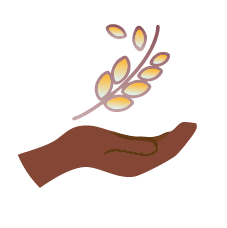
EFF’s Food Security Internventions in Matsangoni
EFF’s interventions in Kilifi through the Matsangoni Agroforestry and Food Security Project and the Tukuze Kilifi Agroforestry Project have tried to put finger millet at the center of local diets. At EFF we strive to make households income secure, food secure and resilient to climate shocks, and the humble finger millet can help us achieve all three of these goals. Millets help strengthen food security and can also create income opportunities and build climate resilience among smallholder farmers. Kadzo Mwamure says, “Finger millet is easy to grow, doesn’t require much rain, and is highly nutritious. My family loves finger millet porridge, and now I no longer need to buy flour all the time. On top of that, I earned an income by selling the surplus in the market.”
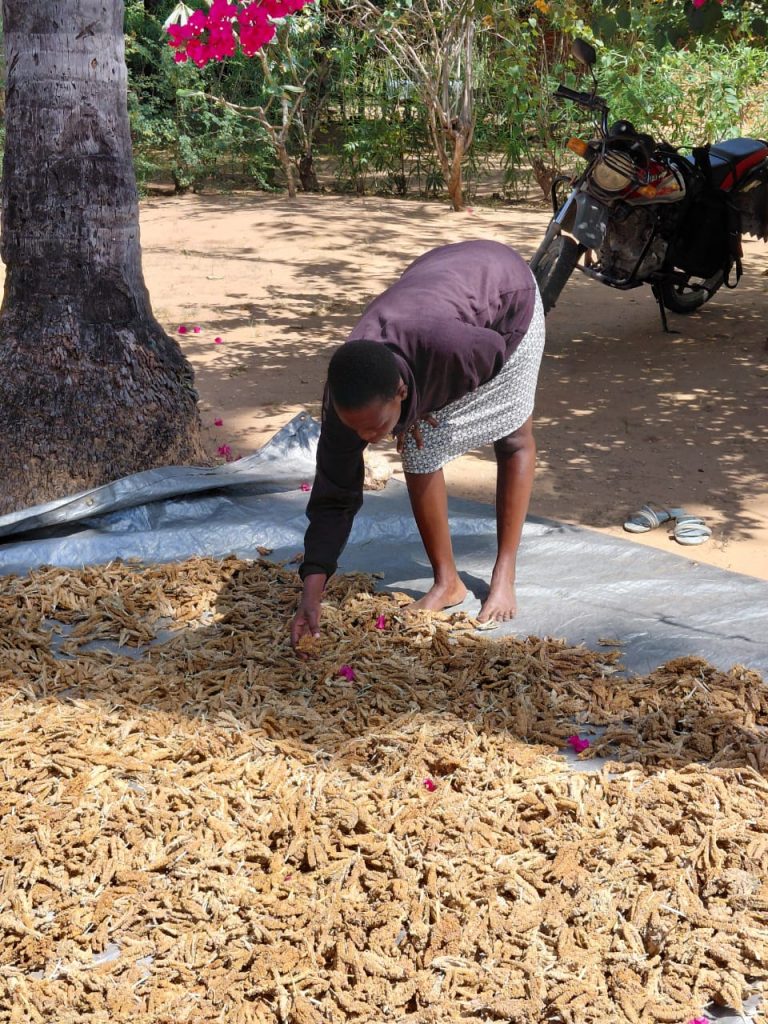
Since the start of the programme, EFF has supported groups of women farmers to integrate finger millet into their farms, often intercropping it with cashew and moringa trees. The result is a diversified agroforest, a climate-smart farming system that boosts soil health, supports sustainable yields, and reduces the risk of crop failure. Across Kilifi, EFF partner households are now growing wimbi, consuming it, and enjoying it.
EFF has placed emphasis on community sensitization around the benefits of finger millet. Our in-house nutritionists, Brian Paul and Pauline Auma, have been instrumental in this effort, conducting awareness sessions in schools, health centers, and local food events across Kilifi. Their mission is simple: to help families understand how finger millet can improve nutrition, especially for children and young mothers. Beyond education, the two have lead interactive cooking workshops, teaching women, men, and children how to prepare delicious and healthy dishes using finger millet. Local favourites like mandazi and chapatis made from finger millet will catch on, turning a traditional grain into a modern household staple.
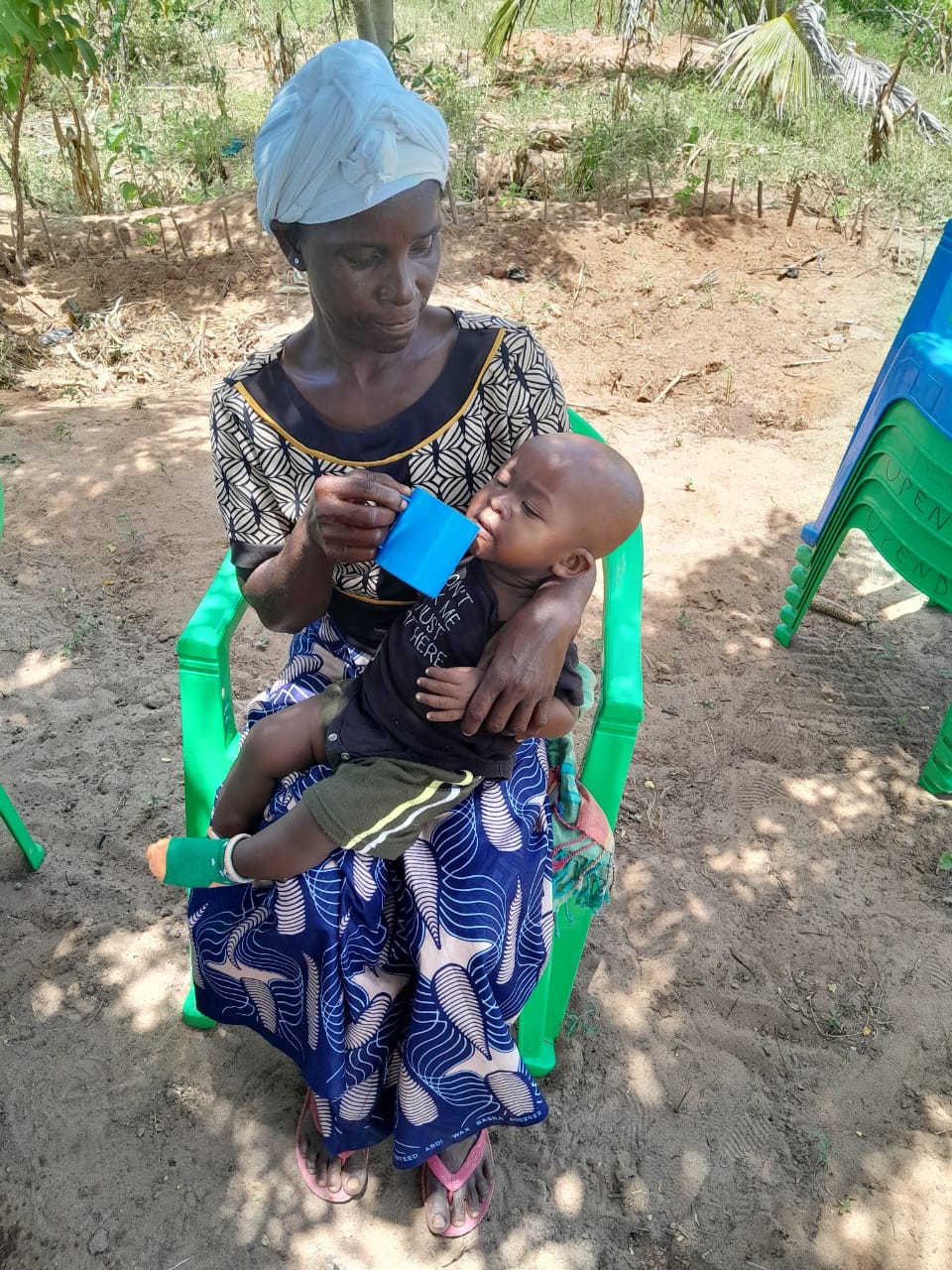
For the women farmers harvesting today, finger millet can represent independence. The crop feeds their families, and the surplus can be sold in local markets to generate extra income. EFF’s next goal is to transform these women into seed merchants, enabling them to sell finger millet seeds to others in their community. By doing so they will strengthen local food systems and ensure that their entire community moves toward food self-sufficiency.
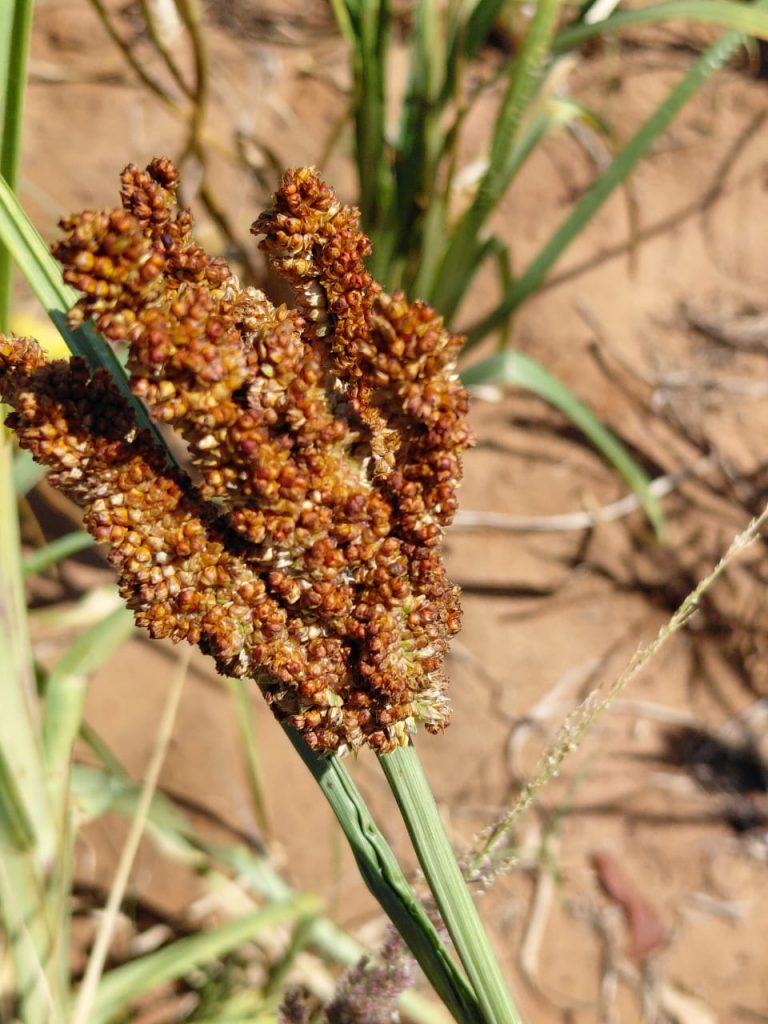
The journey of finger millet in Kilifi reflects EFF’s broader vision of empowering smallholder farmers with the tools, training, and confidence to improve their livelihoods. In a region where malnutrition remains a pressing issue, finger millet offers not just food, but hope: a sustainable way to nourish communities while protecting the land they depend on.
This World Food Day, as the world reflects on how to build a sustainable and hunger-free future, EFF celebrates the women farmers of Kilifi who are leading the way.
